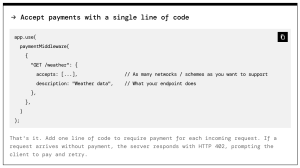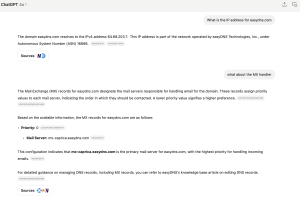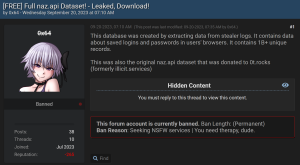How this forgotten result code can redefine the Internet. It is impossible to overstate the importance of Open Source Software in our lives today. Open source initiatives like Unix, Linux, *BSD power somewhere north of 75% to 90% of the net connected servers worldwide, same goes for the vast majority of web servers (Apache, nginx), […]
Of Interest
Grappling With Existential Panic Over AI
If There’s an SOP, You’re SOL From the desk of Mark E. Jeftovic, easyDNS CEO. Some time over the Christmas holidays, I experienced what I called a moment of “existential clarity” about AI and it’s ramifications – when I realized that in the not-so-distant future, it was entirely possible that most of easyDNS’ customers would […]
Canada’s “Strong Borders Act” (Bill C-2) Contains Four Mass Surveillance Trojans
A ban on cash, the post office can open your letters, and warrantless data taps, oh my! The recently re-elected Liberal government has tabled Bill C-2, “The Strong Borders Act”, ostensibly to tighten up border security after the Trump Tariff Tantrums that threw a monkey-wrench into Canada’s political landscape and economy. But nestled within this […]
easyDNS First To Use AI To Answer All DNS Queries
As is customary for the most bleeding-edge DNS provider in existence – easyDNS notches another industry first in being the first (and currently only) DNS provider to exclusively answer ANY and all DNS queries using Artificial Intelligence (AI) and Natural Language Processing. That means the Stone Age RFC-1035 DNS messages have been obsoleted – instead […]
So you’re in the latest credential leak – now what?
Data breaches are increasing in frequency and scale. With mass amounts of data leaked onto the dark web from “credential stuffing” attacks, more people want to know if their private information is secure. So they look for services like HaveIBeenPwned(HIBP), which has been rapidly increasing its user base as more people move to protect their […]
Les nouvelles politiques de messagerie électronique de Gmail, Yahoo, et autres nécessiteront des domaines activés pour DMARC
Mise à jour : 20 janv. 2024 : La date limite du 1er février ne concerne que les domaines expéditeurs qui envoient plus de 5 000 messages par jour vers Google. À partir du 1er février, Gmail et Yahoo commenceront à appliquer l’exigence de Domain-based Message Authentication, Reporting and Conformance (“DMARC”). DMARC est un protocole […]







